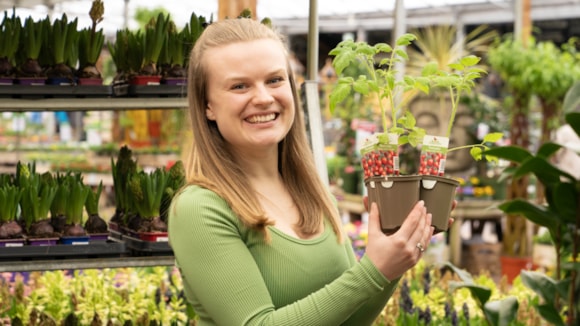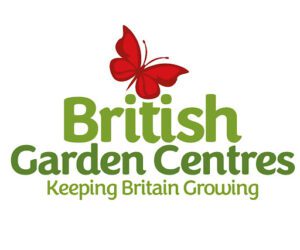National Allotment Week is upon us, running from Monday 12th to Sunday 18th August with the theme of biodiversity and British Garden Centres is here to help you make the most of your growing space. National Allotment Week is a fantastic opportunity to celebrate the joy and rewards of growing your food. Whether you’re a seasoned allotment holder or just starting, there’s always something new to learn and share. From fresh air and community to homegrown feasts, the benefits of an allotment are endless.
These small plots of land can be havens for wildlife, providing food, shelter, and breeding grounds for a multitude of species. By adopting sustainable growing practices and creating wildlife-friendly habitats, allotment holders can make a significant contribution to nature conservation. Here are our top tips on how your allotment can thrive for the wildlife around it:
Soil biodiversity: The soil beneath your allotment is a dynamic ecosystem, hosting a wide variety of organisms such as worms, bacteria, fungi, arthropods, and microorganisms. These soil inhabitants play vital roles in decomposing organic matter, releasing essential nutrients, and creating a fertile environment for plant growth. Worms aerate the soil and create channels for root growth, bacteria and fungi break down organic material into nutrient-rich compounds, and other microorganisms contribute to the overall health and resilience of the soil. This diverse soil life not only supports the current crop growth but also lays the foundation for long-term soil health and productivity.
Above ground: Your allotment can be a haven for pollinators, providing essential food sources. Bees, butterflies, and hoverflies are vital for crop pollination. By planting a variety of flowers and herbs like cornflowers, lavender, marigolds, chives, dill, and mint from your local British Garden Centres store, you can create a buffet for these beneficial insects. Birds find food and shelter in allotments, while hedgehogs and small mammals can thrive in undisturbed areas.
Habitat creation: A tiny patch of land, such as a small allotment, can play a crucial role in supporting local wildlife. By creating log piles, compost heaps, and incorporating water features, you can provide essential shelter and breeding grounds for a diverse range of creatures, from insects to small mammals and birds. This small-scale habitat creation can make a big difference in supporting the local ecosystem.
Minimal intervention: Consider leaving some areas of your allotment to develop naturally. Allowing wildflower patches to thrive and leaving some corners untended can create valuable habitats for diverse wildlife, including insects, birds, and small mammals. This can contribute to the overall biodiversity of your garden and benefit the local ecosystem.
Soil health: Remember to incorporate organic matter, such as compost, into the soil. This will help improve the soil structure by adding valuable nutrients and encouraging beneficial organisms to thrive. Additionally, try to avoid excessive tillage, as it can disrupt the natural balance of soil life and lead to negative impacts on the ecosystem.
Wildlife world: To support local wildlife, consider constructing nesting boxes specifically designed for different bird species and placing them in suitable locations on your allotment. We also recommend setting up water sources such as birdbaths or small ponds to provide animals with drinking and bathing opportunities in warmer weather. Additionally, leave piles of deadwood in undisturbed areas to create habitats for insects and small mammals, contributing to the overall biodiversity of the environment.
Natural control: Consider implementing natural pest control methods such as companion planting, which involves growing certain plants together to repel pests or attract beneficial insects. Another effective technique is crop rotation, where different types of crops are planted in a specific sequence to break the pest cycle. If chemical intervention is necessary, your team at your local store can advise on the use of the least harmful options available to minimise environmental impact and preserve beneficial insects and wildlife.
Measuring success on your allotment
While it’s challenging to quantify biodiversity precisely, you can observe changes over time. Keep a record of the wildlife you spot, noting any increases or decreases. Changes in plant growth and soil health can also indicate improved biodiversity.
Julian Palphramand, Head of Plants at British Garden Centres said: “National Allotment Week is a wonderful opportunity to celebrate the joy and rewards of growing your own food. At British Garden Centres, we’re passionate about helping you create a thriving plot. Whether you’re a seasoned gardener or just starting, we have everything you need to nurture your green space and enjoy the fruits of your labour.”
British Garden Centres (BGC) is the UK’s largest family-owned garden centre group with 62 centres around the
country. The group is owned and led by The Stubbs family, who also own and operate Woodthorpe Leisure Park in
Lincolnshire.
British Garden Centres was launched in 1987 with the opening of Woodthorpe Garden Centre funded by brothers
Charles and Robert Stubbs. Since 2018 it has expanded rapidly with the acquisition of 50 garden centres allowing it
to grow from its heartland to the business it is now over 60 garden centres across the UK, spread from Carmarthen
to Ramsgate, Wimborne to East Durham.
The group has a team of 2,700 colleagues working across the garden centres, restaurants, growing nurseries,
distribution centres, Woodthorpe Leisure Park and Woody’s Restaurant & Bar.
Social Media
Facebook: British Garden Centres
Twitter: @BGCentres
Instagram: @BritishGardenCentres
Website: www.britishgardencentres.com
Help keep news FREE for our readers
Supporting your local community newspaper/online news outlet is crucial now more than ever. If you believe in independent journalism, then consider making a valuable contribution by making a one-time or monthly donation. We operate in rural areas where providing unbiased news can be challenging. Read More About Supporting The West Wales Chronicle




























